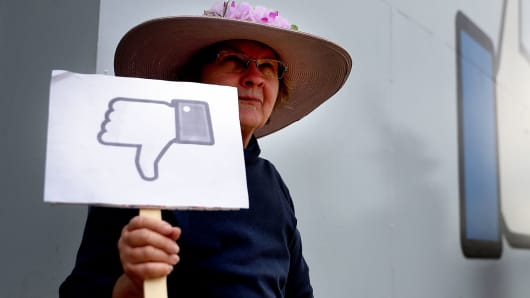Facebook had planned to work with hospitals and other medical groups on a proposal to share data about the social networks of its most vulnerable patients. That project is now on pause until Facebook addresses issues around user privacy and data sharing, CNBC reported Thursday.
The story garnered a lot of mixed reactions from the health community and beyond. Some folks were downright furious that Facebook had ever considered such a plan and others praising the social network for trying to do something good with its data.
So I asked two experts — a health data technologist and a physician now working in venture capital — to weigh in on the pros and cons. Here's what they had to say:



